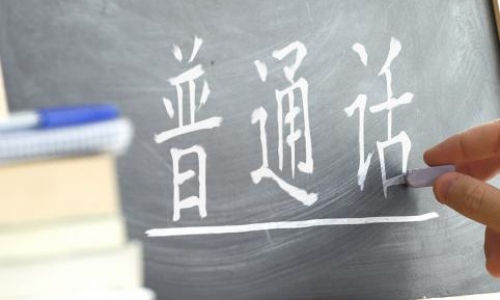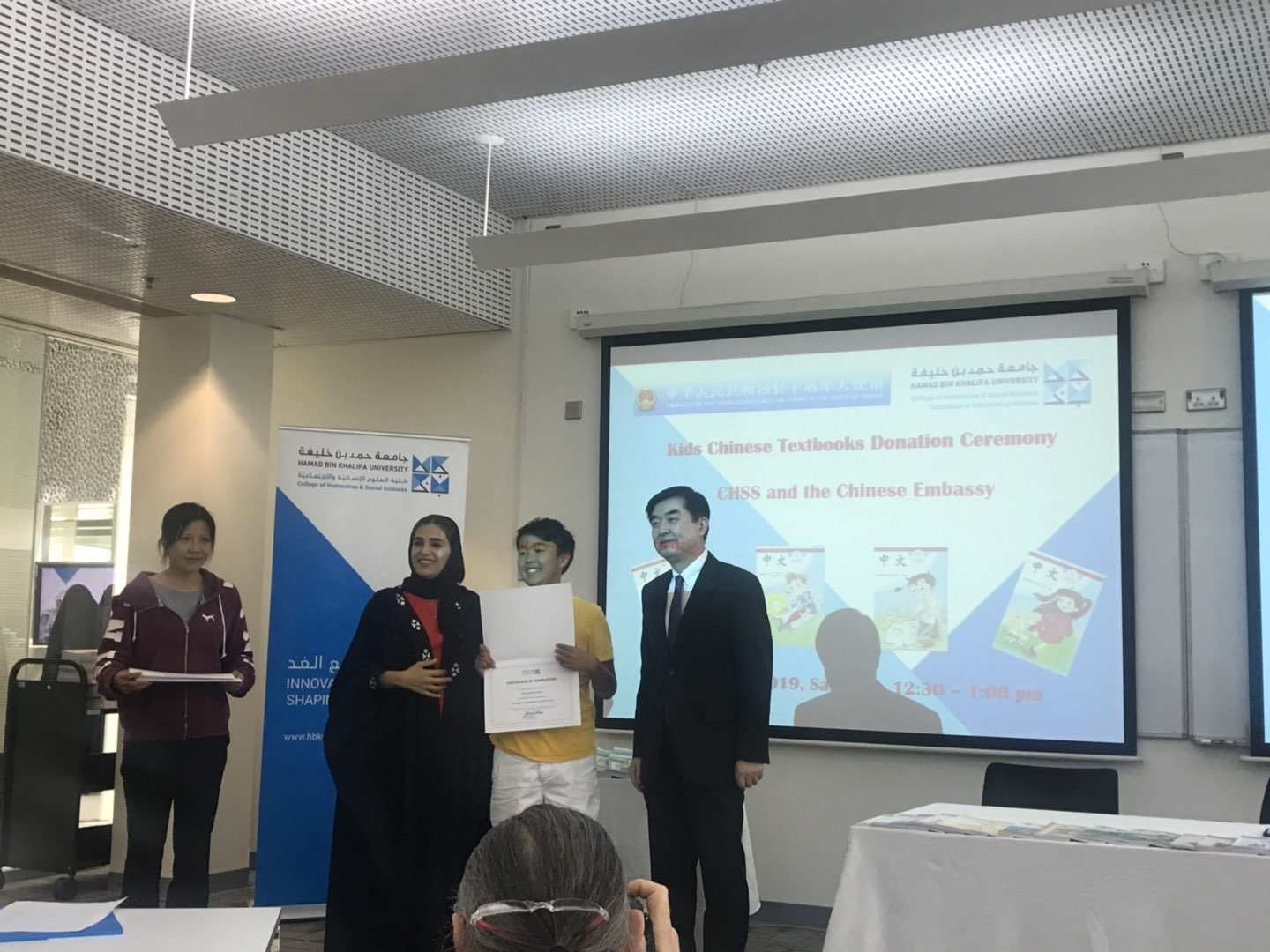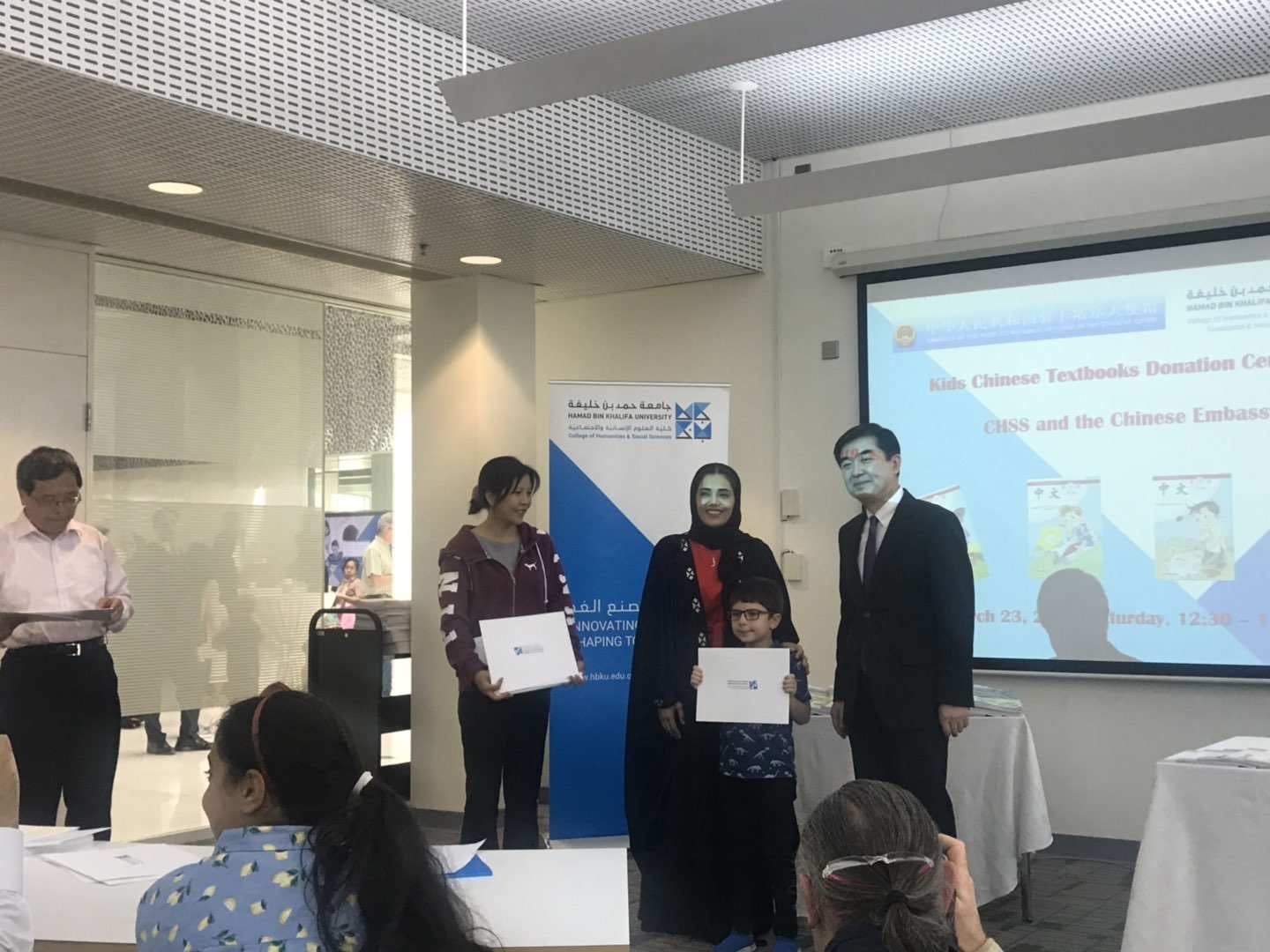Why Language Matters: Encouraging Cultural Exchange Through TII’s Mandarin Chinese Program

With international travel restricted, we are facing what the Washington Post terms “a new era of global distancing”. Universities and academic institutions in Qatar and across the world have suspended study abroad, field research, and exchange programs, traditionally opportunities to strengthen soft ties with other countries and cultures. Amid the protracted suspension of these intercultural initiatives, are there new avenues to encourage people-to-people exchanges?
At the College of Humanities and Social Sciences (CHSS), Hamad Bin Khalifa University (HBKU), intercultural competence goes hand in hand with linguistic skills, and its immersive language learning and academic programs aim to deepen cultural knowledge. Part of its pandemic response has been ensuring that the language learning programs offered by the Translation and Interpreting Institute’s Language Center (TII’s LC) continue virtually. But apart from learning, social distancing has not precluded social connectedness, and students have been part of CHSS’ efforts to strengthen relationships with, among others, the Chinese community.
Thanks to a donation of over 3,000 books from the Chinese Embassy in Qatar in January, the Mandarin Chinese language program offered by the TII LC received a major boost to its teaching resources. The books are a vital part of the immersive cultural learning experience TII is able to offer students unable to move abroad to study the language.
The Mandarin Chinese language program for adults was launched in fall 2014 and for children in fall 2017, and the program has since attracted over 820 students. Immersive classes - delivered online since March 2020 - cover listening, speaking, HSK test preparation, and Chinese teacher training. While developing their communication skills, whether to take up job opportunities or for personal development, students have an opportunity to acquire accurate knowledge of a region that is important in world affairs. Chinese-language books significantly enhance the extent to which TII can integrate culture into its language learning.
 The donation of books by the Chinese Embassy, which included textbooks, storytelling books, and teacher training guidebooks, will mainly benefit the program for children and teenagers but also the courses for adults such as Survival Chinese and the Chinese Teacher Training workshop. The Embassy collected the books through the Association for Overseas Chinese and the Center for International Language Education and Cooperation in China.
The donation of books by the Chinese Embassy, which included textbooks, storytelling books, and teacher training guidebooks, will mainly benefit the program for children and teenagers but also the courses for adults such as Survival Chinese and the Chinese Teacher Training workshop. The Embassy collected the books through the Association for Overseas Chinese and the Center for International Language Education and Cooperation in China.
It is the third donation of books by the Chinese Embassy. When planning the children’s Chinese program in 2017, the Embassy donated 1,500 copies of the popular overseas-use textbook series Zhongwen published by Jinan University Press in Guangzhou, China. In late 2018, the Embassy collected 3,700 books, and CHSS held a textbook donation ceremony on campus in the presence of CHSS founding dean, Dr. Amal Al-Malki, and then Chinese Ambassador to Qatar, HE Ambassador Li Chen.
“The books not only help students to learn and master the language but also introduce our students to the second largest economy in the world, so we are grateful for the support of the Chinese Embassy. The demand for Chinese speakers is on the rise as Qatar welcomes more investors and hopefully visitors and tourists from the region once global travel resumes,” explains Dr. Jian Zhao, Chinese Language Coordinator at TII.
“These stories and books also promote a different kind of cultural exchange, by linking our classrooms to the community and the world. Speaking and understanding the Chinese language is key to appreciating its tradition, cultural values, and national identity.”
The cooperation reflects the friendship consolidated after the China Qatar Year of Culture 2016, when TII first collaborated with the Embassy to mark the Chinese Spring Festival. Since then, a joint celebration involving students is held each year. Due to the pandemic, TII organized a uniquely virtual celebratory exchange in February, with the support of the Chinese Ambassador to Qatar, HE Ambassador Jian Zhou. The event became a vivid, multimedia celebration of friendship and cultural appreciation. Exchanging messages of congratulations and hope, TII’s beginner, elementary, and intermediate students used the opportunity to show off their abilities to speak in Mandarin.
CHSS currently has a visiting student studying the Women, Work and Economic Development in the Middle East course, which is offered through the Master of Arts in Women, Society and Development. Yunhan Wang is a student at Zhejiang International Studies University, majoring in Arabic Language and Literature.
 Yunhan says: “I feel so pleased to live and study in Qatar as people here are very friendly and passionate, which makes me feel at home. I really cherish this opportunity to study at HBKU, which is an elite university with a global impact, as well as a vibrant and welcoming university filled with all kinds of activities. I enjoy exchanging ideas and experiences here with excellent students, educators, and scholars from all over the world, and I believe it will provide me with an experience I’ll never forget.”
Yunhan says: “I feel so pleased to live and study in Qatar as people here are very friendly and passionate, which makes me feel at home. I really cherish this opportunity to study at HBKU, which is an elite university with a global impact, as well as a vibrant and welcoming university filled with all kinds of activities. I enjoy exchanging ideas and experiences here with excellent students, educators, and scholars from all over the world, and I believe it will provide me with an experience I’ll never forget.”
Dr. Amal Al-Malki, Founding Dean at CHSS, says: “We encourage exchanges that foster greater awareness of the Arabic language and of Qatar’s culture, and our dynamic social, economic and political landscape. The humanities and social sciences make an important contribution to a range of contemporary research questions. That makes it important for CHSS to be globally engaged even when a pandemic appears to limit the opportunities to share cultural experiences. Beyond that, at CHSS, we are preparing our students to work in a global economy and that includes helping them become comfortable with other cultures and languages.”
To learn more about the College of Humanities and Social Sciences, please visit chss.hbku.edu.qa and for more on TII’s Mandarin Chinese language courses, please visit tii.qa/chi








